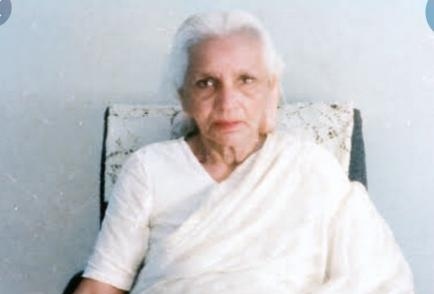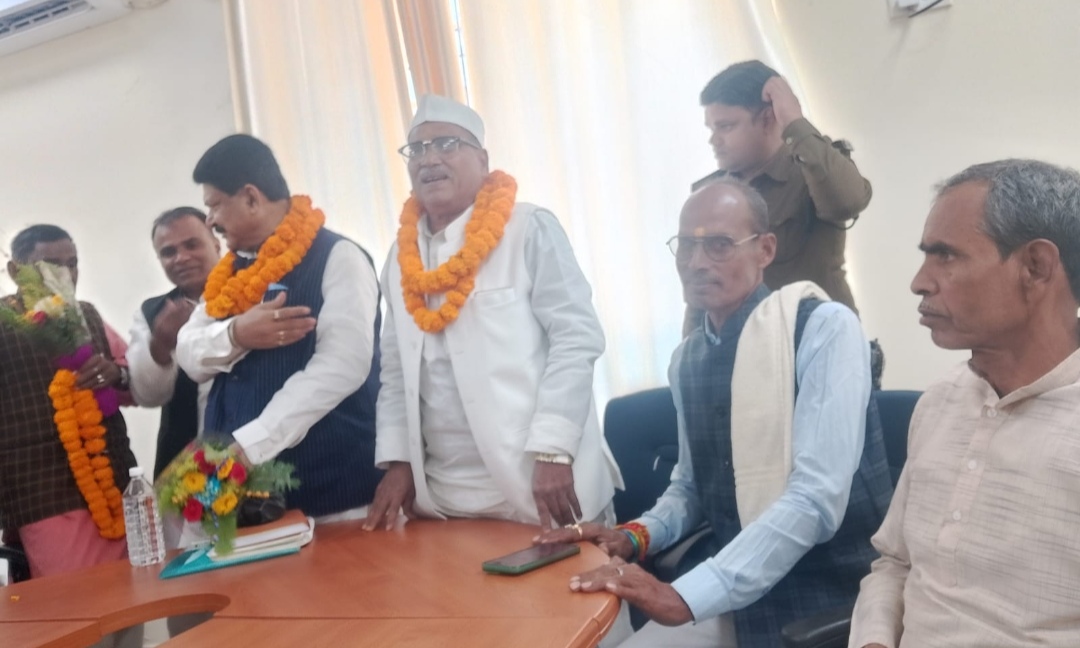 Najmuddin A Farooqi.
Najmuddin A Farooqi.
Begum Anis Kidwai (1906–1982) was an extraordinary woman whose life was marked by resilience, humanitarian service and political commitment. Emerging from the heartlands of Uttar Pradesh, she transformed personal tragedy into a lifetime of public service, leaving behind a legacy that continues to inspire generations. Known for her tireless work in post-partition India, her contributions as a social reformer, writer and parliamentarian exemplify the power of empathy and conviction in the face of adversity.
Early Life and Background
Anis Kidwai was born in 1906 in Masauli, a small town located about 14 kilometers from Barabanki on the Lucknow-Gonda-Bahraich road in Uttar Pradesh. She belonged to a respectable yet orthodox Muslim family of Awadh, with strong patriotic leanings. Her father, Vilayet Ali Kidwai, was a lawyer and a nationalist intellectual who worked with the renowned Ali Brothers during the freedom struggle. He was also a columnist for The Comrade, a prominent journal edited by Maulana Mohammad Ali Jauhar.
Despite the social restrictions imposed on women during that era, Anis received a solid education at home. Like many girls from conservative families of her time, she did not attend formal schooling. However, her sharp intellect and insatiable curiosity helped her gain proficiency in Urdu, Persian and English and a wide understanding of literature, politics and current affairs.
She later married Shafi Ahmad Kidwai, the younger brother of the prominent freedom fighter and future Union Minister Rafi Ahmad Kidwai. The Kidwai household was steeped in nationalist activity, often facing persecution from colonial authorities due to their anti-British stance.
A Tragedy That Transformed Her Life
The defining turning point in Anis Kidwai’s life came in October 1947, in the wake of India’s partition. Her husband, Shafi Ahmad Kidwai, who was serving as the Municipal Administrator in Dehradun, was brutally murdered during a surge of communal violence. He had received threats and was urged by local Hindu friends to leave the city for his safety. Travel arrangements had been made, but Shafi Ahmad refused to abandon his post, believing that he had a duty to protect his subordinates and maintain order in a time of chaos.
His murder devastated Anis. Yet, instead of allowing hatred and bitterness to consume her, she chose the path of compassion. When asked to demand a formal investigation into her husband’s death, her response reflected the depth of her humanity: “Why should the parents, wife and children suffer for the crimes of others?”
Soon after the tragedy, she traveled to Delhi to meet Mahatma Gandhi. Overwhelmed with grief during their meeting at Birla House, she broke down in tears. Gandhi, moved by her pain, advised her to channel her sorrow into service. He encouraged her to help those affected by the violence injured victims, orphaned children, displaced families and abducted women.
Humanitarian Work in the Wake of Partition
Taking Gandhi’s advice to heart, Anis Kidwai threw herself into relief work during one of the darkest chapters in Indian history. Alongside her close friend and fellow activist, Mrs. Mridula Sarabhai, she worked tirelessly for nearly three decades to rescue and rehabilitate women and children who had been abducted, trafficked or displaced during the communal violence of partition.
Their work was not for the faint-hearted. Together, they ventured into riot-torn villages, braved hostile environments and negotiated with militias and hostile locals to recover abducted girls. Anis even performed the last rites of unclaimed dead bodies herself bathing them, digging graves and arranging for cremations. These acts were her personal way of fulfilling the uncompleted mission of her late husband.
She routinely visited refugee camps both for Muslim “panahgazin” (those who chose to stay in India) and Hindu “sharnarthis” (those who fled from Pakistan) listening to grievances, solving disputes and ensuring the dignity and basic rights of displaced people. Often, she did this quietly and anonymously, rarely using her family connection to Rafi Ahmad Kidwai, then Union Communications Minister. Only in extreme cases did she approach Prime Minister Jawaharlal Nehru directly to resolve humanitarian crises.
Political Career and Parliamentary Contributions
In 1956, two years after the death of her brother-in-law Rafi Ahmad Kidwai, Anis accepted an invitation from the Indian National Congress to join the Rajya Sabha. She served two consecutive terms (1956–1968) and proved herself to be a thoughtful and active parliamentarian.
She worked alongside women leaders such as Subhadra Joshi and Savitri Devi Nigam and advocated for several progressive laws, including the 1958 bill for the punishment of crimes against women. Her involvement in parliamentary debates, especially on social justice, women’s rights and rehabilitation, was marked by clarity, empathy and resolve. She also had the opportunity to work closely with both Pandit Nehru and later Prime Minister Indira Gandhi.
A Voice in Literature
Anis Kidwai was also a powerful writer. Her landmark memoir, Azadi Ki Chhaon Mein (In the Shadow of Freedom), published in 1974, offers a heart-wrenching account of the horrors of partition, especially from a woman’s perspective. The book draws from her personal diaries and experiences during 1947–48, capturing the trauma, resilience and humanity of ordinary people during extraordinary times. The work received the Urdu Academy Award and earned her accolades from the Sahitya Kala Akademi. It stands today as a crucial historical document a socio-political mirror that confronts the horrors of the past while advocating for secularism, compassion and communal harmony.
Notable excerpts from her book speak to the timeless relevance of ethics, democracy and national unity:
“No calamity could shake the belief that the survival of the nation rests on moral values, democracy and unity.”
“The architects of a new world must beware of the poison we consumed that led to our destruction. If they build on moral foundations, strength and dignity will be theirs.”
Her writing, steeped in poetic sorrow and philosophical clarity, continues to be cited by scholars and feminists, including Urvashi Butalia in her influential book The Other Side of Silence, which highlights Anis Kidwai’s vital role in documenting women’s experiences during the partition.
Legacy and Final Years
Even amid personal loss her daughter Azadi passed away in 1973 due to a heart condition Anis remained committed to her ideals. She established the Women’s Service Home in her hometown Masauli, aimed at rehabilitating destitute women and victims of post-partition atrocities. The home continues to operate today, serving poor and marginalized women.
Anis Kidwai passed away on July 16, 1982, leaving behind her son, Taufiq Kidwai and daughter, Kishwar Kidwai. Seema Mustafa, Editor-in-Chief of The Citizen and a renowned journalist who formerly served as President of the Editors Guild of India, is the granddaughter of Begum Anis Kidwai through her daughter Azadi. Anis Kidwai’s life was a rich tapestry of sacrifice, service and struggle. She did not seek recognition, but lived guided by a higher moral purpose devotion to truth, non-violence, and human dignity.
A Legacy of Moral Courage
Begum Anis Kidwai remains one of the most remarkable figures in India’s post-independence history. Her courage in the face of personal tragedy, her tireless efforts to restore dignity to thousands affected by partition and her contributions to literature and politics make her a beacon of moral leadership.
In a time when women were often denied a public voice, she not only raised hers but ensured that the silenced found theirs too. Her story is not just a historical account but a moral compass, reminding future generations of the values of empathy, justice and unity.



